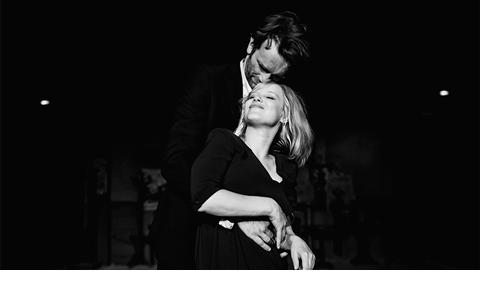The Consequences of Love: Art, Emigration and the Musical in Pawel Pawlikowski's Cold War (2018) Seminar

For more information regarding this seminar, please email Dr Huw Jones at h.d.jones@soton.ac.uk .
Event details
Part of the Centre for International Film Research 2018/19 seminar programme. All welcome.
Abstract
Already regarded as one of the most important contemporary British directors after receiving the BAFTAs for Last Resort in 2001 and My Summer of Love in 2004, Paweł Pawlikowski’s first ever Oscar for Poland for his Holocaust drama Ida (2013) and Best Director at Cannes for another Poland set film Cold War (2018) secured his place (rarely acknowledged before) in the canon of the Polish cinema. Despite attempts to ascribe Pawlikowski’s films to a particular national culture, they defy the national paradigm and fit much more comfortably in the transnational realm of art film. Drawing on a series of original interviews with the filmmaker, the first part of the talk will briefly chart Pawlikowski’s extraordinary life trajectory and the rarely acknowledged richness of his early career. Highlighting Pawlikowski’s working methods, including only minimally-developed scripts and his sculpting method of filming, the second part of the talk will explore the parameters for the understanding of contemporary creative practice, art film and authorship before establishing the formal and thematic preoccupations of his films. The final part of my talk will explore these preoccupations in Pawlikowski’s latest film Cold War. Variously described as ‘love without borders’ or ‘love in an age of borders’, Cold War depicts lovers divided and united across the Cold War divide, yet unable to settle anywhere. The motif of a journey between different places, ideological systems, and cultural and cinematic traditions reoccurs in Pawlikowski’s oeuvre since his early documentaries made for the BBC. Pawlikowski’s films travel from West to East, yet these two localities do not translate into a “here” and “there”. How does Cold War’s formal appropriation of ‘the dualistic structure of the musical genre’ (Altman 1987) help Pawlikowski achieve a near-perfect fusion between form and themes, a long-standing consideration of his?
Speaker information
Dr Joanna Rydzewska. is Senior Lecturer in Film Studies at Swansea University, focusing on film migration and transnationalism. She wrote on Polish émigré directors – Polański, Kieślowski, Pawlikowski – and the representation of Polish migration for Studies in European Cinema, Journal of British Cinema and Television and Critical Studies in Television. Recently she published ‘Transnationalism, Postsecularism and the Enigma of Guilt’ in Ida (2013), Kino polskie jako kino transnarodowe (Universitas 2017) and co-authored ‘New Developments in Eastern European Cinema Since 1989’, The Routledge Companion to World Cinema (2017). Currently she is completing The Cinema of Paweł Pawlikowski: Sculpting Stories for Columbia University Press (2019) and preparing From Valiant Warriors to Bloody Immigrants: Poles in Cinema (Routledge 2020).